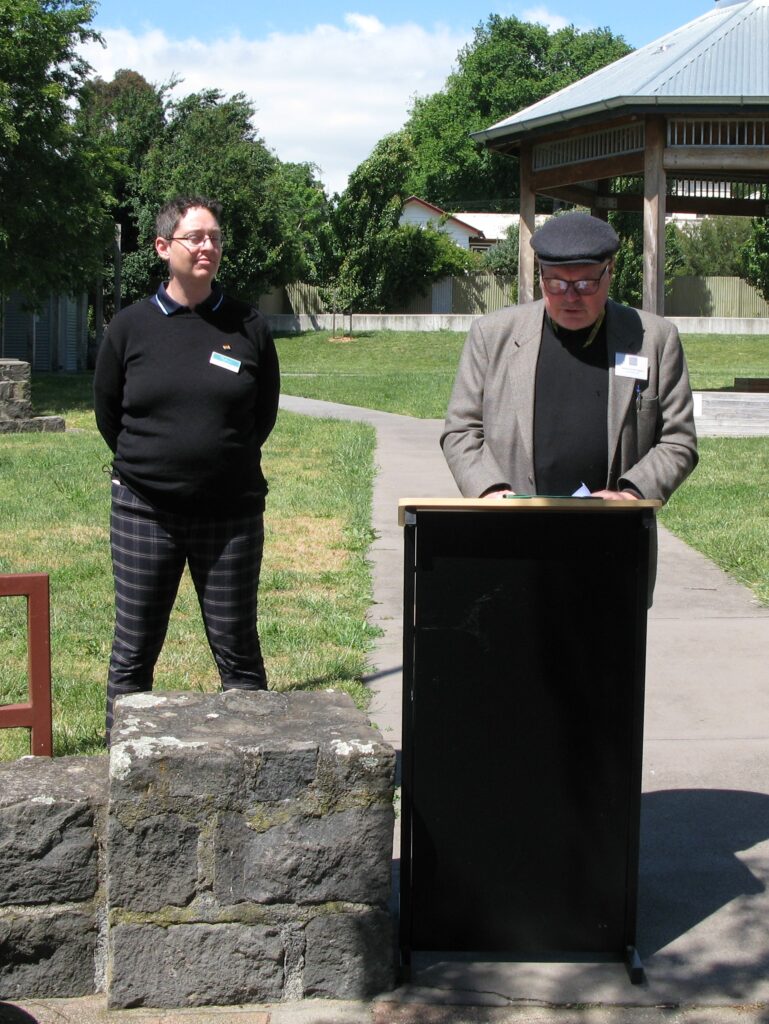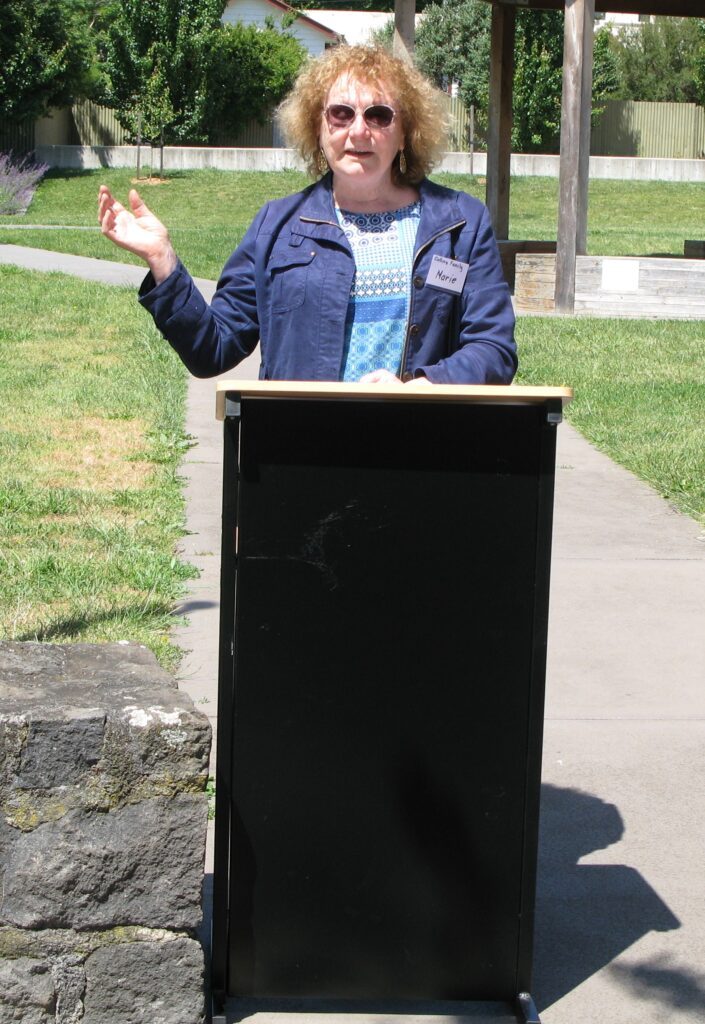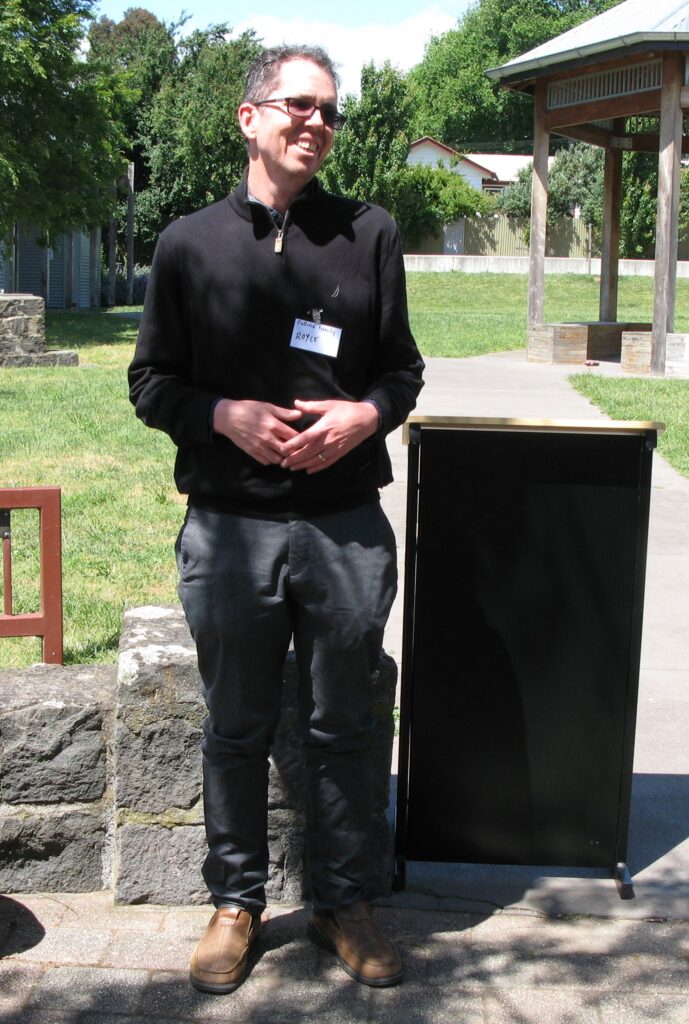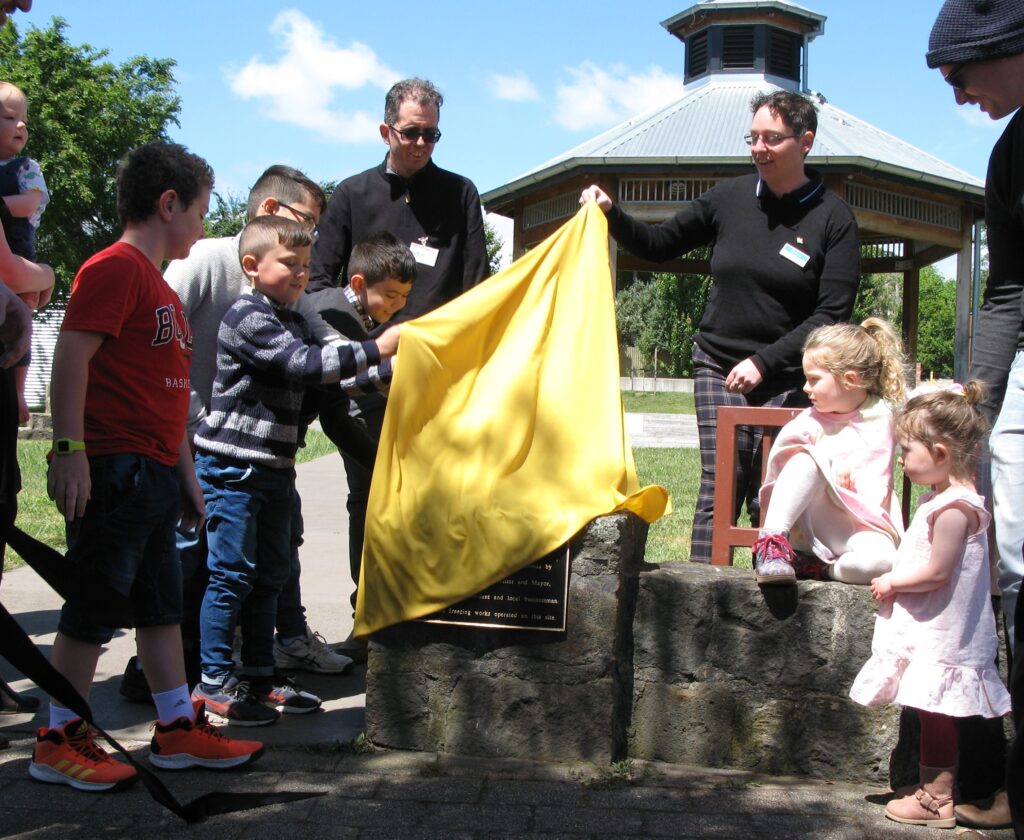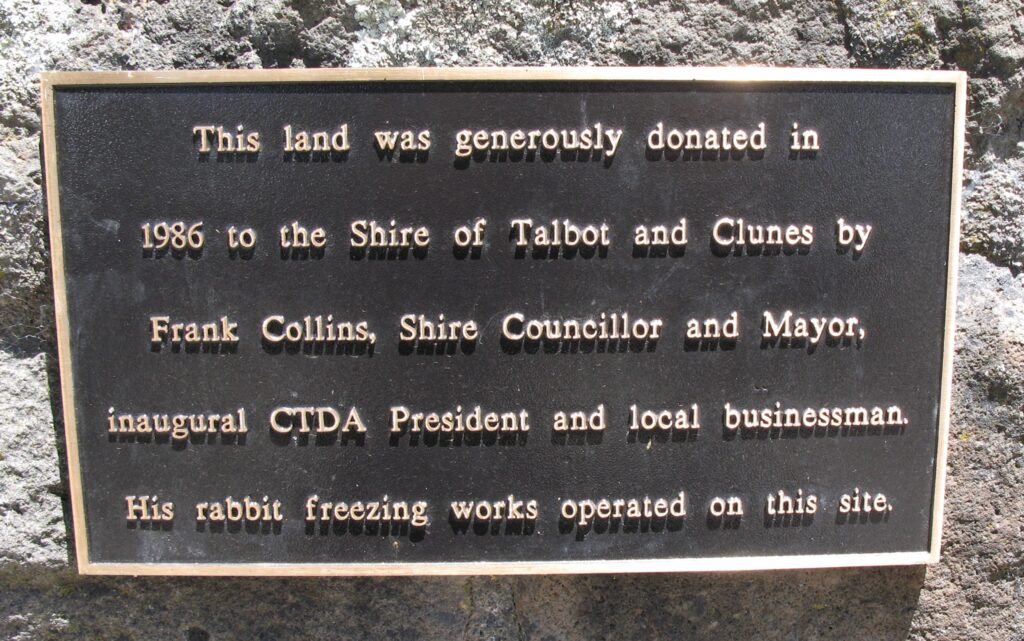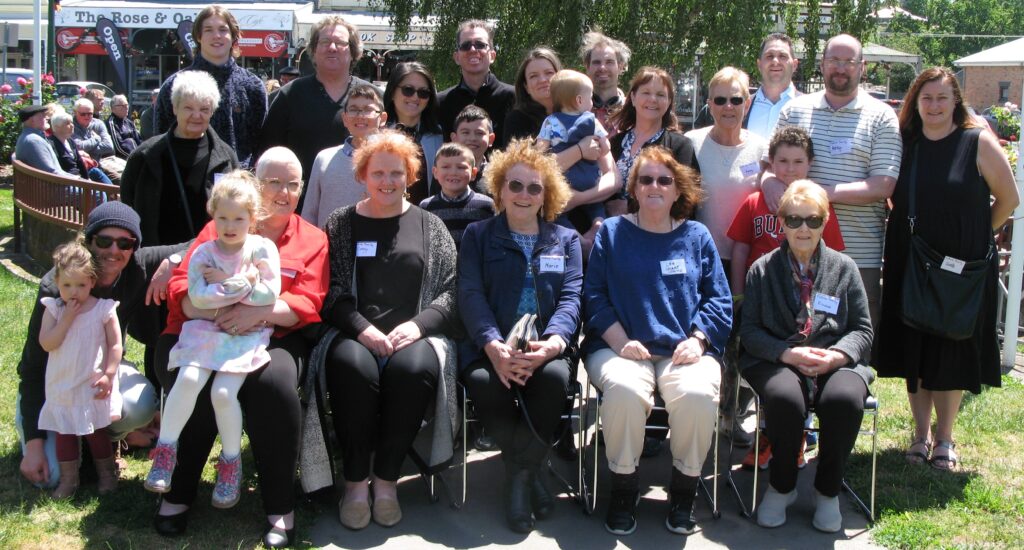Words by Anthony Sawrey, with permission of The Local
Research by Clunes Museum
On November 27, 2021 a plaque was unveiled at Collins Place, Clunes, honouring the memory of Francis Joseph Collins, Shire Councillor, inaugural Clunes Tourist Development Association president and prominent local businessman in the decades after WW11.
One of four children, he was born at Ballarat in 1913 and grew up a big man with a shock of red hair, nicknamed Meggsie after the Ginger Meggs comic. A keen sportsman, Frank, as he was known, played in the Ballarat Football League for Golden Point Football Club (also known as the Rice Eaters) and by 1939 was the club president.
Clunes native and well known Geelong Cats player Bob Davis mentions him in Woofa, the book on his playing career: “One of the most influential ‘Rice Eaters’ was Frank ‘Meggsie’ Collins, a local footballer who taught all the kids special football and training skills. And when I was coach of Geelong, I adopted many of his techniques.”
At the end of the 1930’s Frank decided to move to Sydney. Unable to take part in military service due to poor eyesight, he qualified as a chemical engineer and remained in NSW until 1949 when he returned to Victoria to take over running the National Hotel in Clunes.
“I came here and thought I would stay a few years, that was in 1949,” he said in an interview in 1986.
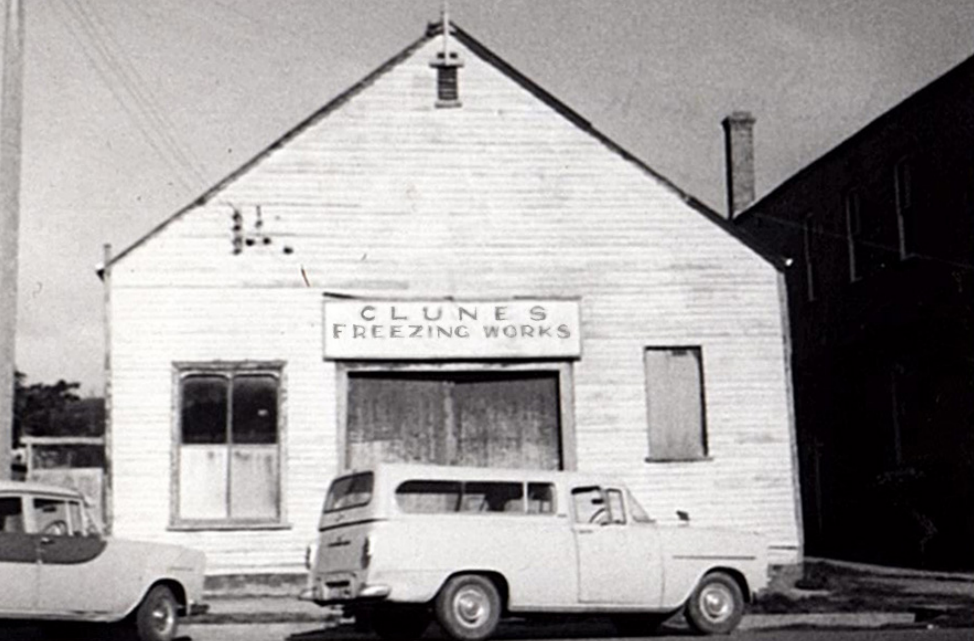
In the same year he purchased the Swan Freezing Company which sat on the site known today as Collins Place. Formerly serving as a Salvation Army hall, knitting mill and Clunes Auction Market, the large weatherboard shed was converted a freezing works and commenced operations in 1948, purchasing rabbits from local trappers as well as supplying ice to businesses and homes.
Today most people tend to think of ‘rabbiting’ as something the rural poor did as a desperate measure to keep food on the table during hard times. But nothing could be further from the truth.
The reality was Australians were estimated to have consumed 27 million rabbits a year during the 1940s alone. Around places like Clunes where the creatures were in plague proportions, trappers could earn over 20 pounds a week when the average wage in 1950 was six pounds per week. Frank continued in the rabbit buying and ice making business until the 1960s, but as chicken gradually replaces rabbit on household tables, he decided to close the factory in 1969.
But the rabbit freezing business was only a small aspect of this man’s contribution to the local community. He was involved in the setting up of the Clunes Swimming Pool, and was a member of both the cricket club and the Clues Magpies Football Club. He coached there from 1949 to 50 and was also President twice in 58-61 and 66-69, a period when the team was very strong, making the Clunes Football League grand final 13 times for five premierships.
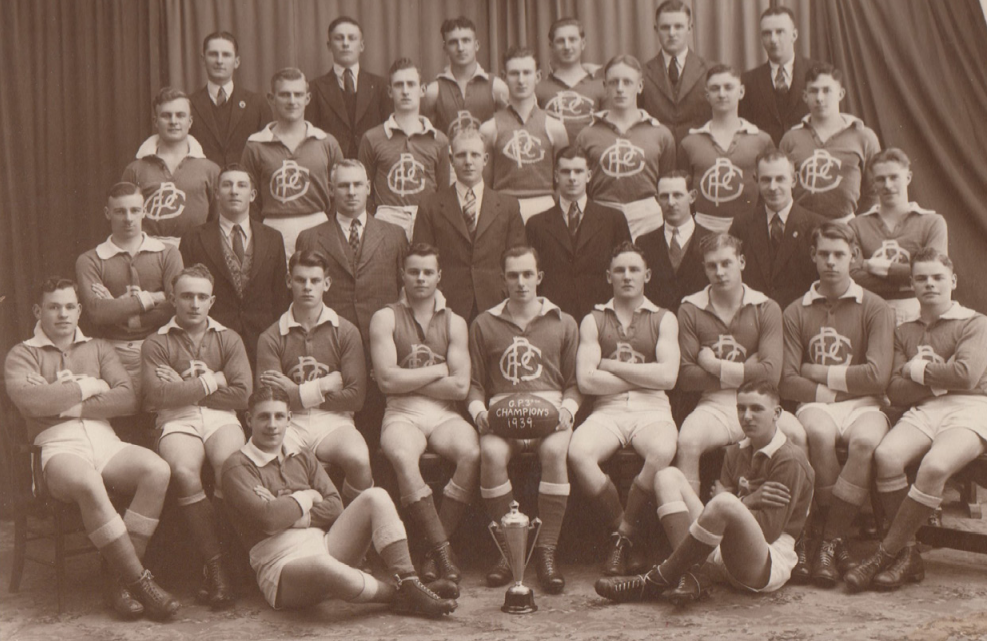
His daughter Cathryn, one of five children, also recalls that Frank was known as Father O’Collins for the popular barrel he used to run on Sunday mornings to raise money for the Clunes footy and cricket clubs.
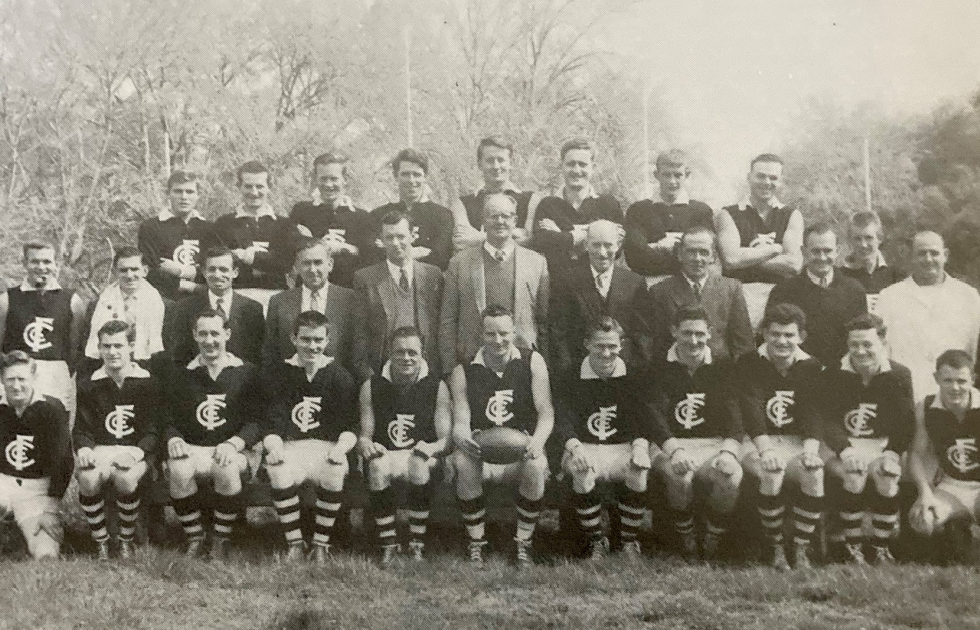
In 1967 he joined the newly formed Shire Council of Talbot and Clunes, serving until 1985. A tireless advocate for the advancement of Clunes, he was also instrumental in forming the Clunes Tourist Development Association and was its first President.
But Collins Place, with its rose garden and lawns, is arguably Frank’s most significant contribution to the fabric of his beloved Clunes. The old freezing works were demolished in the 1970s with the site being given over to hockey and basketball for many years. But upon Frank’s retirement in 1985 he donated the land for the creation of today’s park which was completed in time to commemorate the Australian bi-centennial in 1988.
